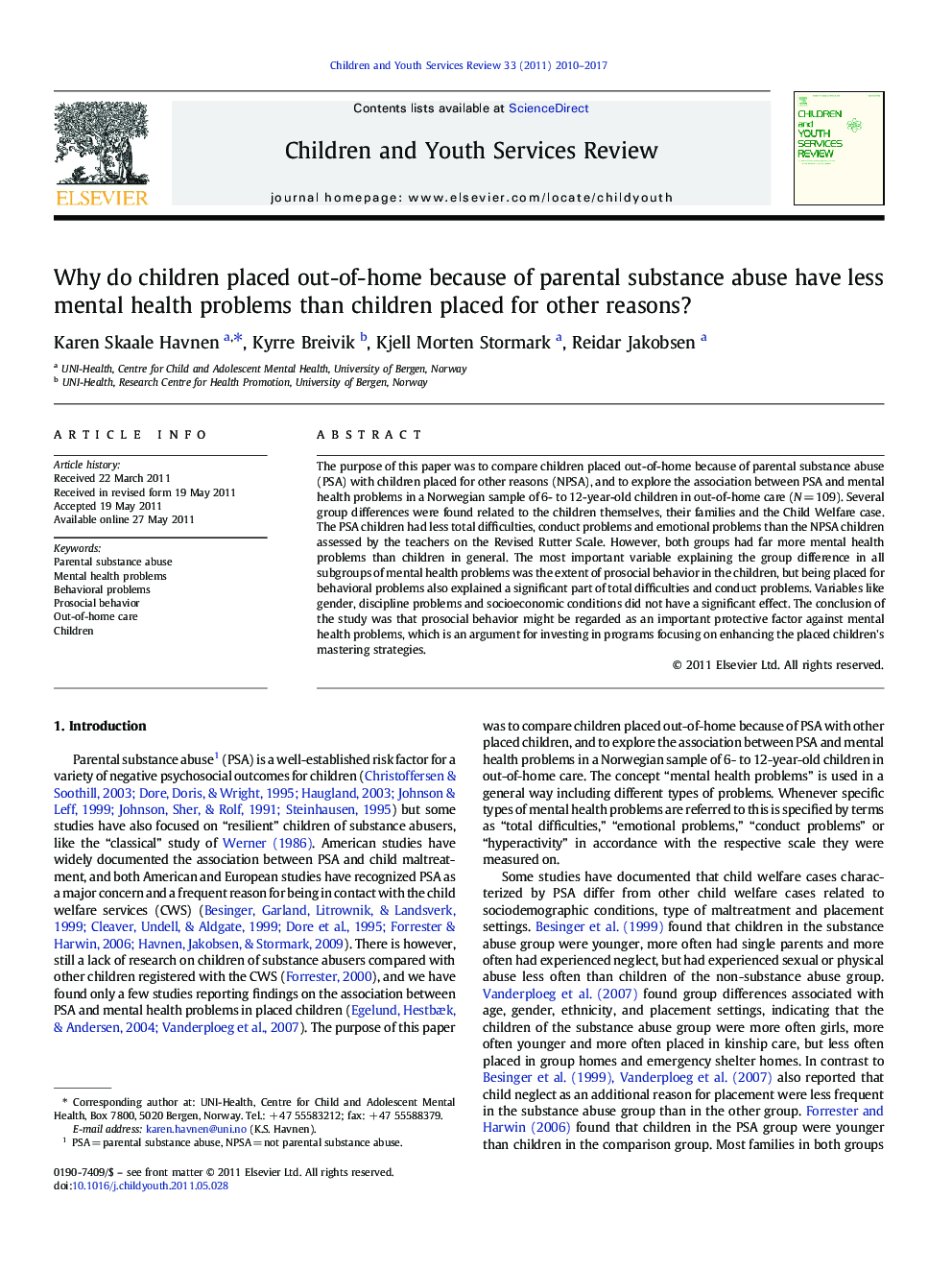| Article ID | Journal | Published Year | Pages | File Type |
|---|---|---|---|---|
| 347229 | Children and Youth Services Review | 2017 | 8 Pages |
The purpose of this paper was to compare children placed out-of-home because of parental substance abuse (PSA) with children placed for other reasons (NPSA), and to explore the association between PSA and mental health problems in a Norwegian sample of 6- to 12-year-old children in out-of-home care (N = 109). Several group differences were found related to the children themselves, their families and the Child Welfare case. The PSA children had less total difficulties, conduct problems and emotional problems than the NPSA children assessed by the teachers on the Revised Rutter Scale. However, both groups had far more mental health problems than children in general. The most important variable explaining the group difference in all subgroups of mental health problems was the extent of prosocial behavior in the children, but being placed for behavioral problems also explained a significant part of total difficulties and conduct problems. Variables like gender, discipline problems and socioeconomic conditions did not have a significant effect. The conclusion of the study was that prosocial behavior might be regarded as an important protective factor against mental health problems, which is an argument for investing in programs focusing on enhancing the placed children's mastering strategies.
Research highlights► The study compares mental health problems in children removed from home because of parental substance abuse (PSA) and other reasons (NPSA). ► The PSA group had significantly less mental health problems than the NPSA group. ► Prosocial behavior was the most important explanatory variable. ► Gender, discipline problems and socioeconomic conditions did not have any effect. ► More research is needed on PSA and placed children's mental health conditions.
